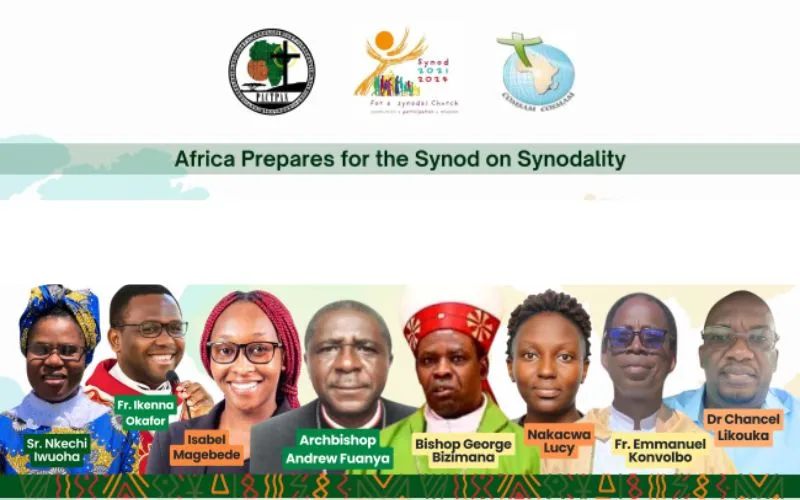Nairobi, 26 August, 2024 / 10:20 pm (ACI Africa).
The Archbishop of Cameroon’s Catholic Archdiocese of Bamenda has faulted claims that the Church in Africa is only influenced by culture when taking a position on controversial topics, especially those raised in the ongoing multi-year Synod on Synodality, which Pope Francis extended to 2024, with the first phase, 4-29 October 2023, having concluded with a 42-page summary report.
According to Archbishop Andrew Nkea Fuanya, Africa’s “vehement no” on hot-button topics such as Lesbian, Gay, Bisexual, Transgender, and Queer/Questioning (LGBTQ) outreach and the ordination of female Deacons was guided by Scripture and the teachings of the Catholic Church, and “not purely” the continent’s culture, which he said had been described as “inferior.”
In his presentation at the August 23 session of the ongoing weekly synodal palavers, Archbishop Nkea recalled the meetings that Africa’s delegates to the Synod on Synodality held before the first phase of the Synod in which he said participants spoke in one voice regarding topics that they picked up from Instrumentum Laboris, the working document for the Synod.
“When we went to the Synod, it was clear that Africa had to take responsibility for its own destiny. We knew we had to make our voice heard in the first phase of the Synod,” Archbishop Nkea said, adding that in making Africa’s voice heard, the delegates made it clear that the continent was “not talking purely from a cultural background.”
“Africa was talking from the background of the traditions of our fathers and from the background of the teachings of the Church,” he said at the event that the Pan-African Catholic Theology and Pastoral Network (PACTPAN) organized in collaboration with the Conference of Major Superiors of Africa and Madagascar (COMSAM).








